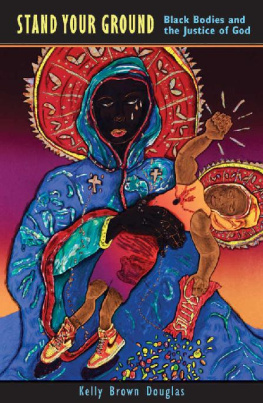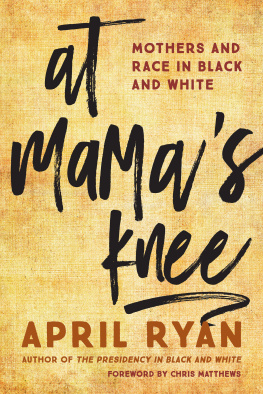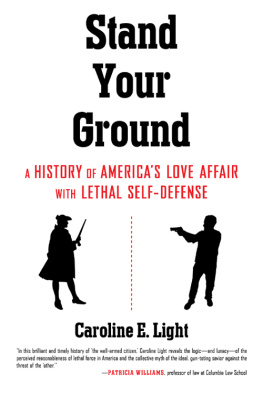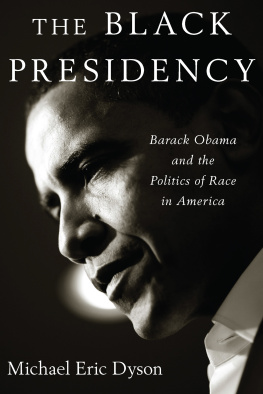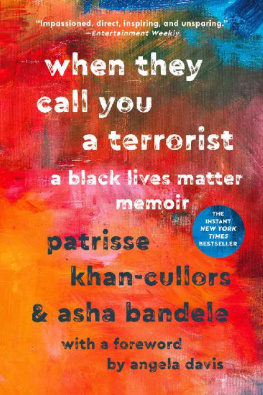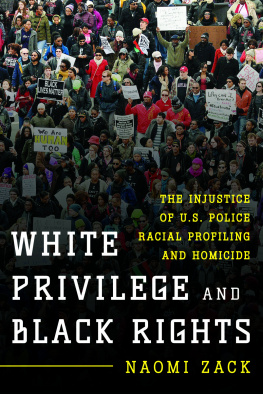Founded in 1970, Orbis Books endeavors to publish works that enlighten the mind, nourish the spirit, and challenge the conscience. The publishing arm of the Maryknoll Fathers and Brothers, Orbis seeks to explore the global dimensions of the Christian faith and mission, to invite dialogue with diverse cultures and religious traditions, and to serve the cause of reconciliation and peace. The books published reflect the views of their authors and do not represent the official position of the Maryknoll Society. To learn more about Maryknoll and Orbis Books, please visit our website at www.maryknollsociety.org.
Published by Orbis Books, Box 302, Maryknoll, NY 10545-0302.
All rights reserved.
No part of this publication may be reproduced or transmitted in any form or by any means, electronic or mechanical, including photocopying, recording, or any information storage or retrieval system, without prior permission in writing from the publisher.
Queries regarding rights and permissions should be addressed to: Orbis Books, P.O. Box 302, Maryknoll, NY 10545-0302.
Douglas, Kelly Brown.
Stand your ground : Black bodies and the justice of God / Kelly Brown Douglas.
Includes index.
1. RacismUnited States. 2. RacismReligious aspectsChristianityHistory. 3. African AmericansSocial conditions. 4. United StatesRace relations. I. Title.
Prologue
The date was February 26, 2012. It was a Sunday evening in Sanford, Florida. It was a rainy evening. Seventeen-year-old Trayvon Benjamin Martin, who lived in Miami Gardens, Florida, with his mother, was visiting his father. Trayvon was walking back to his Sanford residence from a store, where he had just purchased a can of ice tea and a pack of Skittles candy. Trayvon was wearing a hoodie. A neighborhood watch captain spotted Trayvon. He called 911 to report a suspicious person in the gated neighborhood. The 911 operator advised the caller to remain in his car, not to follow the person, and police would be there. The watch captain did not follow instructions. Armed with a gun, he left his car. Shortly thereafter, shots were fired, and Trayvon was left dead on the Florida sidewalk. Trayvon was African American. The watch captain was not. Trayvon possessed ice tea and Skittles. The watch captain possessed a gun. Trayvon's body was taken to a morgue. The watch captain was freed to go home. The next day, Tracy Martin identified his son's lifeless body from a photo. The watch captain was not charged with a crime. The killer was seemingly protected under Florida's Stand Your Ground law. Almost two months later, after black communities across the country launched protest rallies calling for the arrest of the watch captain; he was finally arrested and charged. However, he claimed he killed Trayvon in self-defense.
A year and a half later, on Saturday night, July 13, 2013, a six-woman jury found Trayvon's killer not guilty. They acquitted him of both second-degree murder and second-degree manslaughter. He was a free man. The only person seemingly responsible for Trayvon's slaying was Trayvon himself.
The story of Trayvon Martin was an all-too-familiar story in the black community. It was eerily reminiscent of the 1955 lynching of fourteen-year-old Emmitt Till, which also garnered national media attention. Emmitt was brutally murdered for allegedly flirting with a white woman in a convenience store. Like Trayvon's killer, Emmitt's killers were found not guilty. The only person held responsible for Emmitt's death was Emmitt. And so it was that the story of Trayvon would go down in history as that of another young black male killed for no other reason than the fact of his blackness being perceived as threatening, with his killer getting away with it.
The story of Trayvon was the catalyst for this book. But since then, there have been many other stories like Trayvon'sstories of unarmed black teenagers killed because they were perceived as a threat.
On November 23, 2012, seventeen-year-old Jordan Russell Davis was shot and killed at a Jacksonville, Florida, gas station after an exchange over loud music that was being played in the SUV in which he was a backseat passenger. Believing Jordan had a gun, the white male killer said he felt threatened. The killer, therefore, returned to his vehicle, retrieved a gun, and fired ten shots into Jordan's fleeing vehicle. Three of the shots hit Jordan. Jordan did not have gun. Neither did the other three black male teens in the SUV with Jordan. Jordan was killed. His killer left the scene of the crime. The killer was eventually charged and found guilty of attempted murder for firing at the other teens in the vehicle. The jury hung on the murder charge. Once again, it seemed as if Jordan was responsible for his own murder. A retrial for the murder was scheduled.
On September 14, 2013, an unarmed twenty-four-year-old Jonathan Ferrell was killed by a white police officer. Jonathan's slaying took place after he knocked on a door for help following a single car crash in which he was involved. Frightened, the homeowner called the police. After arriving, a white police officer fired twelve shots at Jonathan, ten of which struck him, causing his death. After an initial grand jury ruled not to indict the officer, a second grand jury indicted him on voluntary manslaughter charges.
Almost two months after Jonathan Ferrell's slaying, a similar fate would befall a nineteen-year-old black female. On the Saturday night of November 2, 2013, Renisha Marie McBride knocked on a door seeking help after a single car accident in which she was injured. The homeowner, a white male, perceived her to be a threat. He opened his door and, with shotgun in hand, killed Renisha. He pleaded self-defense. He was charged with second-degree manslaughter.
These incidents were becoming all too frequent. Why is it becoming increasingly acceptable to kill unarmed black children, I wondered? Why are they so easily perceived as a threat? How are we to keep our black children safe? As a mother of a black male child, I find these to be urgent questions. The slaying of Trayvon struck a nerve deep within me. After Jordan, then Jonathan, then Renisha I was practically unnerved. I knew that I had to seek answers. This book reflects my search for those answers.
Introduction
There has been no story in the news that has troubled me more than that of Trayvon Martin's slaying. President Obama said that if he had a son he would look like Trayvon. I do have a son, and he does look like Trayvon. Raising a black male child is not an easy matter in this society. As a parent, you encourage him to dream, to go for his dreams, and to believe in himself. At the same time, however, you have to make him aware of the society of which he is a part. This is a society in which black males are perceived as suspicious or dangerous. I was certainly aware of this from my son's earliest school days. Expectations were frequently lowered in terms of his academic abilities, while trouble was often anticipated. Whether the bias against black males is spoken or unspoken, conscious or unconscious, it is palpable. As President Obama observed in his July 19, 2013, press conference following the verdict in the trial of Trayvon's killer, there is virtually a visceral reaction to the black male presencefrom locking car doors to clutching one's purse on an elevator.

